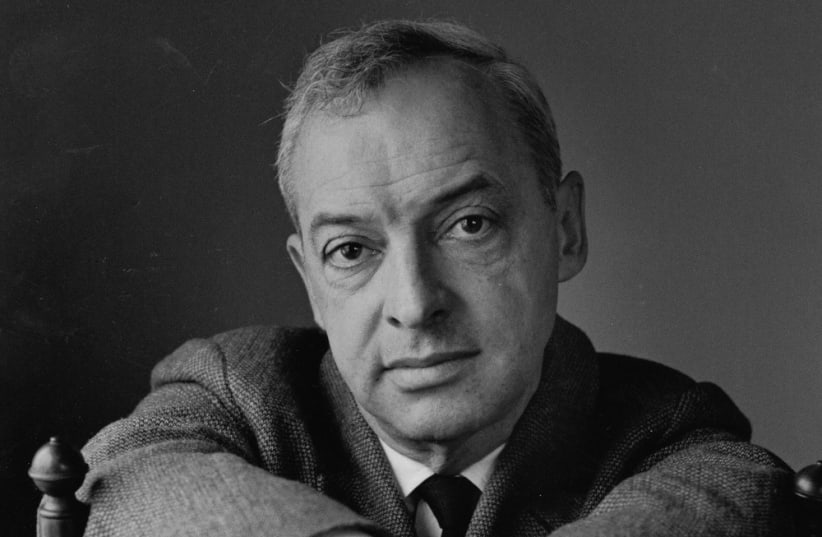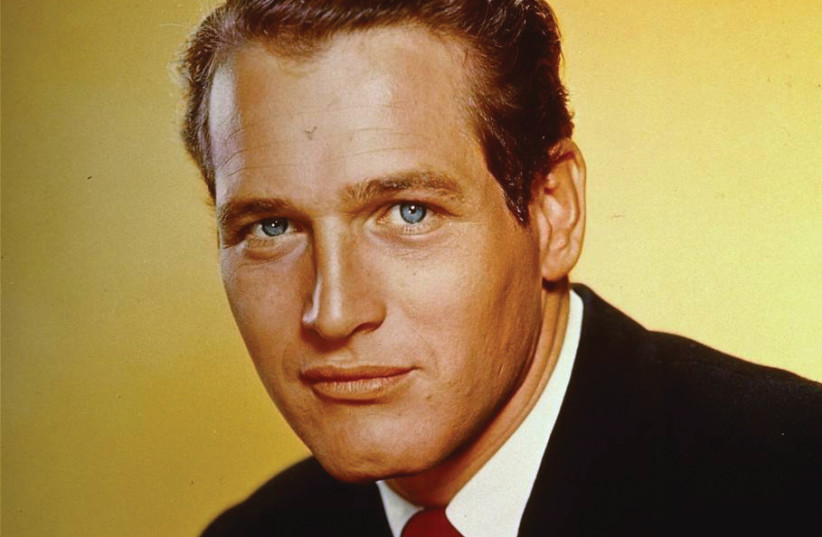One of the strongest sections in the Jerusalem Jewish Film Festival, which will run at the Jerusalem Cinematheque from November 27-December 2, is the Jewish Portraits program. This section features documentaries about well-known figures, both from Israel and abroad, including politicians, novelists, musicians, philanthropists and actors.
Menachem Begin is one of the key figures in Israeli history and his life and legacy as a leader are examined in the new documentary, Upheaval: The Journey of Menachem Begin by Jonathan Gruber.
Using interviews and archival footage, as well as commentary by political analysts, journalists and historians (among them The Jerusalem Post’s Lahav Harkov), the documentary paints an in-depth portrait of one of Israel’s most complex and controversial prime ministers. It goes back into his childhood in what is now Belarus and examines the antisemitism and persecution of him and his family by both the Soviets and the Nazis, which shaped his world view. Detailing his fierce criticism of the Zionist leadership in Palestine, it shows how he joined the Irgun and embraced its methods, certain that this was the only way to the establishment of a Jewish state. It also looks at his early political life in Israel, when the Likud was considered a fringe party, and shows how he hung on and created the political upheaval to which the title refers, when the Likud defeated the Labor Party in 1977. It shows his support for the immigration of Ethiopian Jews as well as his embrace of refugees from Vietnam. And, of course, it
highlights the historic peace accord with Egypt that he brokered along with Egyptian president Anwar Sadat, for which he shared a Nobel Peace Prize, and which created a different kind of upheaval in the Middle East. It also looks at his personal life, notably the love story he had with his wife, Aliza, whose death devastated him.
Many interviewees observe that there are simply no longer any leaders of his caliber in Israeli politics, and seeing Upheaval will likely make you agree with that statement, whether or not you agree with him politically.
Saul Bellow was a major American writer, who won the Nobel Prize for Literature in 1976 and his work is front and center in the fascinating new documentary by Asaf Galay, The Adventures of Saul Bellow – the title is a reference to one of his early novels, The Adventures of Augie March. His books are discussed by colleagues, critics and academics, who evaluate his legacy. These include Philip Roth, Ruth Wisse, Martin Amis and Salman Rushdie. Through clips and archival photos, the film shows the Chicago neighborhood where Bellow moved as a child and which influenced his work. They also discuss how his Jewish identity deeply affected his work, even while it sometimes made him uncomfortable.
But it is his often turbulent personal life that is the most controversial and surprising portion of the documentary. Bellow was married five times and had his last child at the age of 84 and several of his adult children speak about their relationships with him. He had intense friendships throughout his life and in some instances, he modeled characters on his friends. His Pulitzer Prize-winning Humboldt’s Gift was a fictionalized version of his relationship with a writer who was patterned on Delmore Schwartz, whom he portrayed as brilliant and tormented, and the book was widely praised. But friends were more surprised by his later novel, Ravelstein, in which he outed his friend, Allan Bloom, the author of The Closing of the American Mind, as gay. It was an open secret among Bloom’s friends that he was homosexual but he chose not to share this publicly. The discussion among his friends about why Bellow made this decision is one of the most interesting parts of the movie.
Serge Gainsbourg’s life was also often more controversial than his work and the comprehensive new documentary about him, Gainsbourg, toute une vie, by Stéphane Benhamou and Sylvain Bergere, explores all of it. The French chanteur, who was also a composer, painter and actor (he is credited with appearing in over 50 films), was famous, and at times, infamous, for his love affairs with beautiful women, including Brigitte Bardot, who recorded the erotic duet, Je t’aime mois non plus, with him. Later, Jane Birkin, his collaborator, partner and muse, rerecorded Bardot’s part and the song was released and became a huge hit. Birkin as well as their daughter, actress Charlotte Gainsbourg and many others who knew him well are interviewed extensively for this film. A key part of the film looks at his life under Nazi occupation and explores how his family managed to survive. One aspect of his life that will be new to many viewers is about how he worked in a home for children orphaned in the Holocaust and honed his musical and comic skills as he entertained and amused them and also taught music to them.
Some will say that a movie about Paul Newman, whose father was Jewish but who did not have a Jewish upbringing, does not really belong in this festival. But his many ardent fans will be pleased with the inclusion of the documentary, Paul Newman, Behind Blue Eyes by Pierre Francois-Gaudry. It is by no means a great movie – it’s short, the narration is oddly translated from a French version and there are some significant omissions – which may not be long on insight or new information but it contains some wonderful, rare clips of the actor, who was one of the last truly great movie stars.
On the one hand, Newman was so handsome – yes, those blue eyes – that he was like a special effect and that got him starring roles almost straight out of the gate. But the history of Hollywood is littered with the stories of pretty boys (and girls, of course), who could not hold the screen in spite of their beauty. Newman – the iconic star of such films as Butch Cassidy and the Sundance Kid, The Sting, Cool Hand Luke and many others – always had a charm and intelligence on screen that kept getting him more roles, even when he starred in some clinkers such as The Silver Chalice. And once he understood that he could fight for roles and take charge of his own destiny, to a degree, he became a much more interesting actor. He was also an acclaimed director of serious films that gave his wife, actress Joanne Woodward, some of the best roles ever played, such as Rachel, Rachel, but he is remembered today for his much longer career as an actor.
He kept his private life private and avoided the scandals that derail so many actors. The film does not really give much insight into the nature of his long-lasting marriage but it does touch on the death of his oldest son, which cast a shadow over his life.
Soros, a documentary about Hungarian-Jewish philanthropist and financier George Soros by Jesse Dylan (Bob Dylan’s son), looks at his achievements and the controversies surrounding him. Soros has been accused by numerous far-right and QAnon conspiracy theorists, as well as by former US president Donald Trump, of everything from controlling the world economy to fostering political unrest in the US and even collaborating with the Nazis; the latter accusation being especially ironic because his family narrowly escaped deportation to death camps. But this documentary was criticized when it was released in 2019 for painting an overly rosy portrait of Soros and not delving deeply enough into the contradictions in his life.

